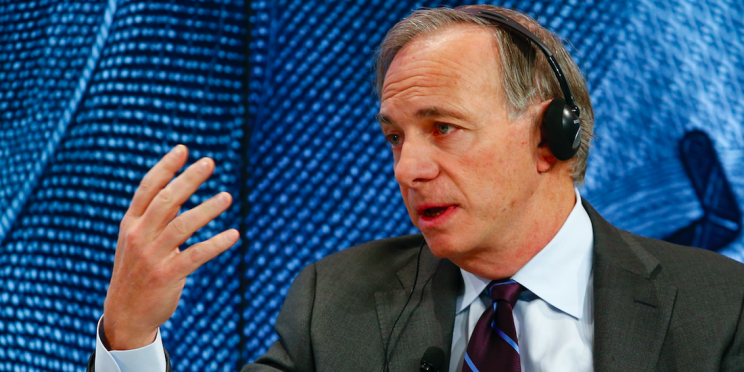Ray Dalio: Bridgewater's culture is 'like going into a nudist camp'

Ray Dalio, the founder of Bridgewater Associates—the world’s largest hedge fund— compared his firm’s “radical transparency” culture to a nudist camp.
Upon joining Bridgewater, the firm’s 1,500 employees were required to read Dalio’s “Principles,” a 123-page manifesto. One of those principles is to be “radically transparent.” At Bridgewater, 99% of all meetings are recorded. The fund makes those tapes available to employees so that people can see and hear things for themselves rather than through the spin of others.
It can take some getting used to, though.
“Not everyone wants to stand naked in front of everybody. It’s a little bit like going into a nudist camp for the first time,” Dalio said at the New York Summit, a conference put on by the New York Times.
He continued: “I don’t know if you’ve ever gone to a nudist camp. In other words, when you first walk into a nudist camp, it’s very awkward. Everybody’s looking around, OK. Before you know it, you’re talking about interesting subjects and you don’t pay attention. If you can stand naked in front of them and have them stand naked in front of you, you can have better relationships and be more productive. It has to be getting over that emotional reaction.”
According to Dalio, radical transparency means less lying and fewer problems. However, the challenge of radical transparency is that information “can create distortions.”
Dalio criticizes New York Times story
At the conference, Dalio once again criticized the New York Times, claiming a “ridiculous” article about the fund’s co-CEO, Eileen Murray was “intentionally done incorrectly.”
The New York Times article in question brought up a video file at Bridgewater called “Eileen Lies.” Five years ago, James Comey, now the FBI director, was working as general counsel of Bridgewater when he had to examine a matter involving Murray. During that examination, Comey found that Murray had “been dishonest about her dealings with a lower-level employee regarding his employment at the firm,” the article said. That lower-level employee was dismissed, while Murray kept her job.
Dalio explained that the lie was that Murray had her assistant, who was “under stress,” type an email message for her. The assistant sent the message. Murray claimed that she typed the email.
“That was the lie, OK,” Dalio said. “Now you see this, it shows, are all the lies the same? The motivation was to protect that person who was under stress. The tape was called ‘Eileen Murray Lies.’ Do you want to fire her for that minor, tiny thing?…She shouldn’t have done that… The point of the thing is when you don’t see it and you create this false reality.”
“There are journalists, writers, who are intended to be, let’s call them investigative reporting. They’re supposed to come out with things they think are scandalous. As a result of doing that, they kind of weave together things in a way that’s meant to be, like they say, ‘good news doesn’t sell.’ So, it’s meant to be that way. In the interactions that I have had with them, there has not a desire to get at truth. So, that’s the challenge of radical transparency. We’re a very easy organization to look at because we have everything radically transparent. So if you get the tapes and you see it, you can have a lot of material,” Dalio said.
Watch the interview below:
—
Julia La Roche is a finance reporter at Yahoo Finance. Follow her on Twitter.
Read more:
The top 20 hedge funds made their investors $16.1 billion in 2016

